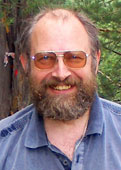
One cannot consider the modern crisis as a purely financial, economic or environmental one. First of all, it is of the deep anthropological nature of the global consumer society: the inability of the modern world order to respond to the challenges of crisis imbalances in the global economy, the threats of local wars and pandemics, climatic, environmental and leisure crises, but most importantly, meaning crises which sharply exacerbate in the digital network society. Therefore, we proceed from a person, not from the economy, the latter should serve the person, and not vice versa, as is commonly considered today. It is clear that after the epidemic and crisis, the world will be different; there are not so many scenarios for overcoming them. These lines are being written during a period of unprecedented general panic over the epidemic of the COVID-19 (which is no more dangerous than the past swine or bird flu epidemics), with the help of which the Masters of the World are trying to justify the inevitable collapse of the global financial and economic system that generates the Great Depression 2.0, which began almost a year ago with an uncompromising trade war between China and the United States, and was accurately predicted by us back in 2018. Now, the richest families of the world, the largest investment funds and TNCs solve their problems of redistributing markets and get rid of their debt liabilities not by means of wars and revolutions that destroy the real material potentials of states and peoples, but sophistically, in a new way, by means of devastating many developed countries through their economic self-destruction during a halt of life in self-isolation and quarantine, the purchase of their assets, lands and real estate for nothing at the end of the crisis, the introduction of a total surveillance system and administrative and medical dictatorship. In fact, we are talking about a kind of ‘digital concentration camp’, the separation and self-destruction of people and peoples, and the establishment of a feudal-oligarchic dictatorship; to get this expected result, it is enough to maintain the fear of being infected and the prospects of new epidemic waves of new viruses that will necessarily appear, either artificial or generated by a sick biosphere. But the plans of manipulating fear are increasingly being destroyed by the awareness of the peoples’ interests by the national elites, the consolidation of people in spite of self-isolation, the awakening of spiritual values and conditions in people in the face of a mortal threat. All these opens a window to the new emerging world, another future for the World, to which the proposed theses are devoted.








